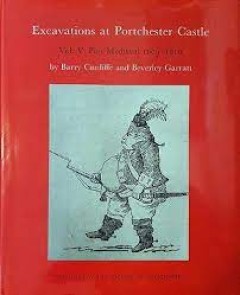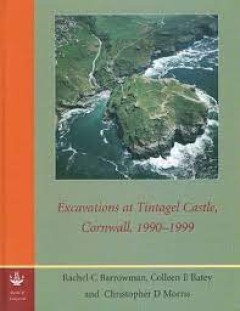Filter by

The Hoarding Vikings
Cover -- Half Title -- Series -- Title -- Copyright -- Contents -- List of figures -- Preface and acknowledgments -- 1 Bornholm: a treasure island -- 2 The multi-causal hoards -- 3 Identifying Bornholm's hoards: content, character, and chronology -- 4 Classification of production, circulation, and distribution data -- 5 Silver flows: analysis of production data -- 6 Stab, bend, and cut: analysi…
- Edition
- -
- ISBN/ISSN
- 9781032647760
- Collation
- -
- Series Title
- -
- Call Number
- -

Excavations on the site of the Roman town at Wroxeter, Shropshire, in 1912
This is an account of the excavations on the site of the Roman Wroxeter in Shropshire, England, undertaken in 1912. Included are descriptions of artefacts such as pottery and human remains, together with an account of the methodology used to unearth these.
- Edition
- -
- ISBN/ISSN
- -
- Collation
- -
- Series Title
- -
- Call Number
- -

Complexity and dynamics Settlement and landscape from the Bronze Age to the …
How did people organize their settlements in later prehistoric societies? How do architecture, spatial organization, land divisions, and landscape use relate to different modes of social organization? The papers in this book contribute to a greater understanding of the complexity and dynamics of settlement and landscape organization in the Nordic countries from the Late Bronze Age to the Renais…
- Edition
- -
- ISBN/ISSN
- 9789464270440
- Collation
- -
- Series Title
- -
- Call Number
- -

Alalakh: an account of the excavations at Tell Atchana in the Hatay, 1937–1949
This monograph describes large-scale excavations undertaken by Sir Leonard Woolley from 1937 to 1939, and again from 1946 to 1949, at the site of Alalakh (modern Tell Atchana) – a late Bronze Age city in the Amuq River valley of Turkey's Hatay Province. Described is the evidence of a series of superimposed palaces and temples, town defences, private houses and graves, in 17 archaeological lev…
- Edition
- -
- ISBN/ISSN
- 9780854312177
- Collation
- -
- Series Title
- -
- Call Number
- -

Excavations at Portchester Castle Vol. V: Post Medieval 1609–1819
In the fifth and final report on the excavations at Portchester Castle, the last stage of the castle’s useful life is considered in full. The excavations undertaken between 1961 and 1979 brough to light structural evidence of the various buildings erected during the period 1609–1819, together with a large collection of varied artefacts. This evidence is presented against the backgrounds of …
- Edition
- -
- ISBN/ISSN
- 9780854312641
- Collation
- -
- Series Title
- -
- Call Number
- -

Excavations at Tintagel Castle, Cornwall, 1990-1999
Romantic rock-perched sea-girt Tintagel is a magical place that resonates with Arthurian associations - and the archaeological reality is no less intriguing than the legend. Investigation of the site began in the 1930s, when Dr Ralegh Radford uncovered remains of buildings with significant volumes of eastern Mediterranean and North African pottery of fifth- to seventh-century date, suggesting a…
- Edition
- -
- ISBN/ISSN
- 9780854312863
- Collation
- -
- Series Title
- -
- Call Number
- -
 Computer Science, Information & General Works
Computer Science, Information & General Works  Philosophy & Psychology
Philosophy & Psychology  Religion
Religion  Social Sciences
Social Sciences  Language
Language  Pure Science
Pure Science  Applied Sciences
Applied Sciences  Art & Recreation
Art & Recreation  Literature
Literature  History & Geography
History & Geography